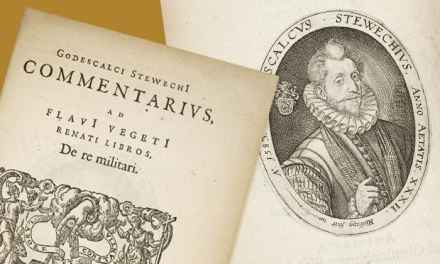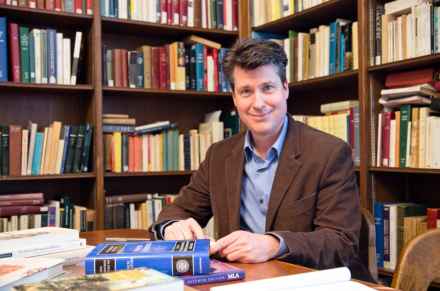Michael I. Allen Donates Rare Manuscripts to Honor University Librarians
To honor University Librarian Judith Nadler's "leadership and careful guidance for researchers", Michael I. Allen, Associate Professor in Classics, donated the fifth-century military science text De re militari or On Military Matters by Flavius Vegetius Renatus to the Special Collections Research Center. Because the book was shunned by the Church, it is extremely rare--approximately a dozen copies exist in North American and European libraries. Allen was pleased to present his gift “in honour of Judith Nadler in recognition of her long, varied, and important contributions to the University through the Library.”
Earlier in 2012, Allen also donated Vita D. N. Jesu Christi, by Ludolphus of Saxony, in honor of James Vaughan, Associate University Librarian for User Services. This rare 17th-century text presents the life of Christ through meditations and prayers. Upon donating the book, Allen said: “I’m pleased to offer a special book in honor of Jim Vaughan. Like all the library staff, he makes positive things happen."
For more news on events and exhibitions at the Special Collections Research Center, click here.

